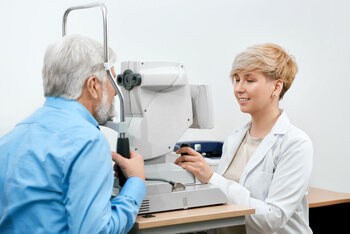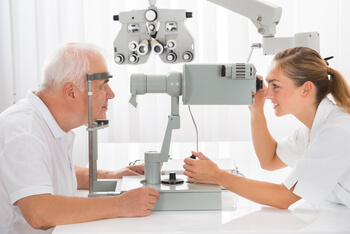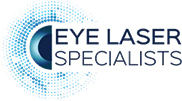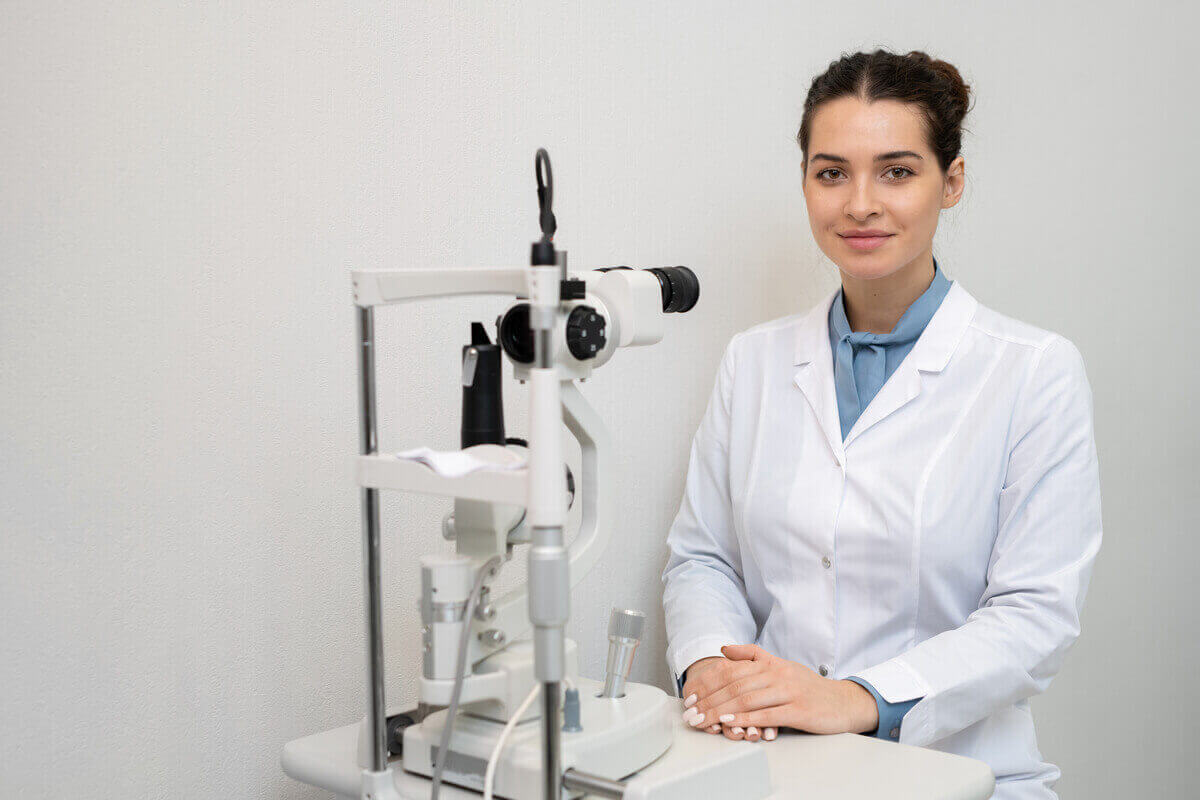 How Does Laser Eye Surgery Work?
How Does Laser Eye Surgery Work?
Laser eye surgery encompasses a group of procedures that correct an eye’s prescription by surgically altering the cornea at its front surface.
The cornea is the clear tissue covering the coloured iris and is one of the components of the eyeball responsible for focusing light. The other anatomical component involved in this process, known as refraction, is the crystalline lens.
If the light is not focused at a sharp point onto the retina, you will perceive your sight as blurry or unclear. This is the basis of refractive error, which can include:
- Myopia or short-sightedness. This occurs when light is bent too acutely and comes to a focus in front of the retina.
- Hyperopia or long-sightedness. This happens when light isn’t focused enough through the cornea or lens and only comes to a focal point once it’s passed the retina.
- Astigmatism. Astigmatism is slightly different in that it usually occurs because the cornea (or lens) is unevenly curved. This results in light coming to two separate focal points.
- LASIK (laser-assisted in situ keratomileusis)
- PRK (photorefractive keratectomy)
- SMILE (small incision lenticule extraction)
Who Should Not Have Laser Eye Surgery?
As LASIK, PRK, and SMILE are all slightly different procedures, the finer details of who should not have laser eye surgery can be dependent on which technique you’re looking at. These are known as contraindications for laser eye surgery. Possible contraindications that apply to all forms of laser eye surgery include:- Having a condition that impairs healing. Conditions that inhibit the body’s healing response, such as keloids or autoimmune disease, can be a contraindication to laser eye surgery as it may result in haziness of the cornea and suboptimal sight post-operatively.

- Corneal infection. Applying a laser to a cornea with an active infection or ulcer may result in further, uncontrolled damage to the corneal tissues. Some surgeons may also be hesitant to perform laser eye surgery on people with a past history of herpes eye infection (keratitis), as the laser may reactivate the virus.
- Keratoconus. Keratoconus is a disease in which the cornea thins and bulges. As laser eye surgery involves removing tissue, it may weaken this structure further and significantly impair sight.
- Taking isotretinoin. Also known as Accutane, this medication is often prescribed for skin acne. However, it’s also associated with significant post-operative dry eye in patients who undergo laser eye surgery.
- Taking amiodarone. Amiodarone is a medication prescribed for heart arrhythmia. Studies have shown that this drug may be associated with visual disturbances after having laser eye surgery, such as seeing flashing lights or coloured rings.
- People under the age of 18. Your surgeon may have a higher minimum age, such as 21. The purpose of this contraindication is that the eyeball is still growing and changing under this age, which can result in your refractive error continuing to change after you’ve had laser eye surgery.
- Dry eyes. One of the more common side effects after laser eye surgery is dry eyes. Those who have severe pre-existing dry eyes or another condition that makes them susceptible to dry eyes are among those who should not have laser eye surgery.




